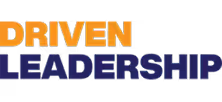Conflict Resolution Training in Tacoma, WA


Leadership Training Conflict Resolution Training in Tacoma, WA
Strong conflict resolution skills are essential for leaders who need to keep teams productive, engaged, and aligned — especially in Tacoma, WA where diverse industries, unionized workforces, and hybrid schedules create unique friction points. Our Leadership Training Conflict Resolution program teaches practical frameworks and hands-on techniques leaders can use immediately to de-escalate tension, facilitate difficult conversations, and build a culture of constructive disagreement that improves performance and retention.
Why conflict resolution matters for Tacoma organizations
Tacoma organizations face specific challenges that make trained conflict resolution especially valuable:
- Port, manufacturing, and logistics roles often require tight coordination under high pressure, making miscommunications costly.
- Healthcare, education, and service sectors must balance empathetic communication with clear accountability.
- Union or collective-bargaining environments increase the need for neutral, rules-based approaches to disputes.
- Hybrid and remote work patterns create misunderstandings over expectations and access, increasing latent conflict.Addressing these issues through leadership training reduces downtime, improves team cohesion, and protects morale in a competitive regional labor market.
Common conflict issues we address
Leaders who enroll typically want tools for these recurring problems:
- Avoidance of difficult conversations that allow performance problems to worsen
- Personality clashes that disrupt team norms and collaboration
- Cross-functional friction between departments with different priorities
- Escalation with clients, vendors, or union representatives
- Misaligned expectations in hybrid teams about roles and responsiveness
Core techniques taught
This program blends proven conflict frameworks with communication skills leaders can use day one:
- Thomas-Kilmann Conflict Mode Instrument (TKI) frameworks for identifying styles and choosing the right approach
- Difficult conversations structure: set context, state observations, express impact, invite solution
- Active listening and reflective paraphrasing to lower defensiveness
- Message mapping for clarity under pressure
- Interest-based negotiation and problem solving to move from positions to shared outcomes
- De-escalation tactics and tone control for emotionally charged interactions
- Role-anchored language and boundary setting to maintain accountability without blame
Workshop structure and delivery
Training is structured to maximize behavior change through experience and feedback:
- Pre-work assessment
- Short leader survey and conflict snapshots to tailor scenarios to Tacoma workplaces.
- Foundational workshop (half-day or full-day options)
- Interactive modules on TKI, difficult conversations, and listening skills.
- Short teach-practice cycles with micro-feedback.
- Applied role-plays and scenarios
- Realistic simulations drawn from local industries: union-management meetings, cross-department prioritization, customer escalations, remote-team miscommunications.
- Participants rotate roles (leader, employee, observer) to practice perspective-taking.
- Real-time coaching
- Facilitators provide structured feedback using observable behavior checklists.
- Video or live observation options for richer debriefs.
- Action planning
- Each participant leaves with a specific, time-bound plan for applying skills to an active workplace issue.
Role-plays and scenario design
Role-plays are designed to replicate Tacoma-specific dynamics so learning transfers quickly:
- Port logistics: conflict over missed shipments and blame culture
- Healthcare unit: shift handoff communication breakdowns causing patient safety risk
- Public education: parent-teacher conflict escalation with community scrutiny
- Hybrid office: perceived unequal workload and visibility between onsite and remote staffScenarios include scripted triggers and open-ended outcomes so facilitators can shape learning around each leader’s response style.
Follow-up coaching and reinforcement
Learning is only effective when reinforced. Our follow-up structure supports sustained change:
- Short one-on-one coaching sessions to refine application of tools to live disputes
- Group check-ins to share outcomes, surface challenges, and crowdsource solutions
- Microlearning modules (5-15 minutes) for ongoing skill refreshers
- Behavioral metrics to track progress: reductions in repeat escalations, improved peer feedback scores, and faster resolution timelines
- Optional observation and refresher sessions three to six months after initial training
How this training improves team cohesion and performance
When leaders consistently practice these skills, measurable differences emerge:
- Faster, more constructive resolution of disagreements, reducing project delays
- Higher psychological safety as employees see conflicts handled fairly and transparently
- Clearer expectations and fewer performance-based surprises
- Better collaboration across functions due to improved negotiation and listening practices
- Reduced turnover as workplace culture becomes more resilient under stress
Practical tips for Tacoma leaders to sustain gains
- Normalize structured difficult conversations by scheduling regular check-ins focused on alignment rather than blame.
- Use TKI awareness as a team tool: share profiles and discuss how to leverage complementary styles.
- Document agreements from conflict conversations and follow up with short written summaries to maintain accountability across remote and in-person team members.
- Model de-escalation language in public meetings to set a tone that prioritizes curiosity over accusation.
- Invest in periodic role-play refreshers aligned with seasonal or operational peaks unique to Tacoma industries.
ConclusionConflict resolution is not an optional soft skill. In Tacoma’s fast-moving and diverse workplaces, leaders who can manage disagreements constructively protect productivity, engagement, and reputation. This Leadership Training Conflict Resolution program combines proven frameworks like TKI with realistic role-plays, contextual scenarios, and sustained coaching so leaders not only learn the skills but apply them consistently to produce measurable improvements in team cohesion and performance.

